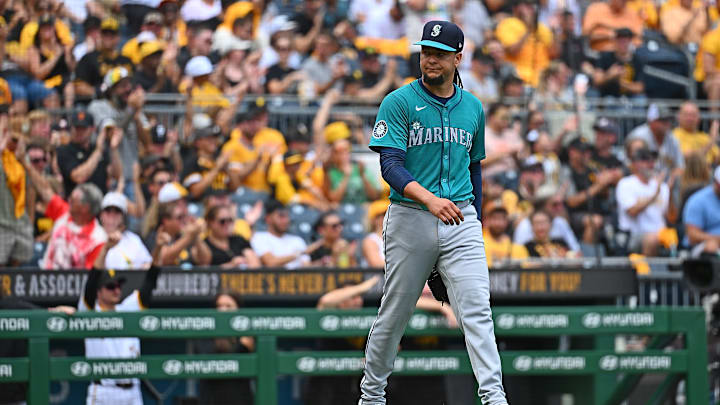Baseball rankings can be difficult. Unless you're ranking by a specific metric, there's a nearly infinite amount of subjectivity and even statistics like WAR vary by provider and still fail to paint a complete and accurate picture.
Some publications therefore like to create their own criteria by which teams are sorted and it can lead to some surprising results.
The Athletic, with Stephen J. Nesbitt in the lead, recently published the latest iteration of their MLB franchise rankings for the last 25 years. The list compiles playoff outcomes (World Series wins, World Series appearances, Championship Series appearances, etc.) and awards points based on how each organization has fared in the last quarter-century of postseason baseball.
Given that this list is largely based on the playoffs, it should be no surprise that of the 30 MLB teams, the Seattle Mariners ranked 27th, beating out just the Cincinnati Reds, Baltimore Orioles, and Pittsburgh Pirates.
Have the last 25 years of Mariners baseball really been that bad?
Since 2000, the Mariners have won a single division title, lost in the ALCS twice and in the ALDS once. This pales in comparison to teams like the New York Yankees, who have only missed the playoffs five times over the same span.
On the other hand, it seems odd to think of the Mariners as a less competent franchise than the Colorado Rockies, Miami Marlins, or Los Angeles Angels. These three teams depend heavily on the success of seasons in the 2000s for their scores and have had similar, if not worse struggles, over the past decade. Yet the Marlins' 2003 World Series win, Angels' run of perennial playoff appearances from 2002-2009, and the Rockies' World Series appearance in 2007 all gave them a leg up on the Mariners on this set of rankings.
One could argue that this list could have done a better job of discounting the value of past results and weighing recent championship equity more heavily, but that wouldn't have helped Seattle much either given their lone postseason appearance since 2001. One could also argue that the organization's lack of historical precedent and modern triumph should incentivize the front office to take a more aggressive approach to roster construction, but that simply hasn't been the case.
At the very start of the article, Nesbitt acknowledges that this methodology is flawed and the list itself shouldn't be interpreted as anything more than a fun exercise. Generally speaking, that's how most, if not all, rankings systems should be assessed: with a grain of salt.
In this case, it's true that Seattle should be more proactive in creating competitive rosters and has done little to improve its reputation over the past few decades. However, organizations like the Marlins and Rockies are a great reminder that things can always be worse.
